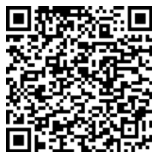
Be the first to know
Babymama Magazine
Babymama Magazine
What’s Freezer Burn And How Does It Affect Frozen Breast Milk?
on Feb 06 2020
If you store breast milk in the freezer as you should, you may have noticed ice crystals forming in the milk. When you thaw it, you catch a whiff of a sour odor. Does this mean the milk has gone bad? No, this is just the sign of freezer burn in your breast milk.
What is freezer burn? Freezer burn is what happens when food much like breast milk is frozen and exposed to air. The milk reacts to the oxygen, or oxidizes, causing it to lose moisture and form ice clumps.
Nonetheless, the milk is still safe for your baby to drink. He may still drink it, but he might not want to. Freezer burn causes the milk to taste bad, so your baby might reject the thawed milk. Also, the milk may have lost much of its moisture, so it may not hydrate your baby enough.
Luckily, you can keep your breast milk from getting freezer burn by storing it properly. You may store it in breast milk bags, but make sure they’re closed securely, letting no air inside. You can also put it in a solid container and keep the lid closed.
Reference/s:
https://www.romper.com/p/can-breast-milk-get-freezer-burn-lactation-consultants-explain-19454548
https://www.smartparenting.com.ph/pregnancy/breastfeeding/breast-milk-freezer-burn-a00286-20200105
Babymama Magazine
Know Your Philhealth Maternity Benefits
on Jan 06 2020
Giving birth can be quite expensive as it can cost you anywhere from to ₱5,000 to ₱200,000. To assist mothers, Philhealth offers a variety of benefits bundled in their Maternity Care Package.
As a Philhealth member, you are entitled to ₱6,500 if you give birth in a hospital. If you give birth in a non-hospital facility, you will receive ₱8,000. The amount is broken down for different purposes:
₱6,500
1. Professional fees for accredited doctors, and fees for facilities mothers use for delivery and postpartum care, and reproductive health, breastfeeding and newborn screening counselling.2. Room and board at the hospital or medical facility3. Necessary medicines4. Laboratory fees, supplies, and other additional procedures5. Labor, delivery, and recovery room fees
₱1,500 (for non-hospital birth)1. Necessary medicines2. Lab tests and additional procedures3. Immunization for tetanus4. Doctors’ professional fees, as long as you have official receipts
Philhealth also has benefits for mothers who give birth via cesarean section. They receive a fixed amount of ₱19,000. ₱11,400 is for medical fees while the remaining ₱7,600 is for doctors’ fees. However, this only applies to your first normal birth delivery. In addition, they cover complicated vaginal delivery at ₱9,700; breech extraction at ₱12,120; and vaginal birth after C-section (VBAC) at ₱12,120.
How To Avail These Benefits?
1. For Employed members, the requirement is at least three months of contributions within the 6 months immediately before availment.2. For Individually Paying members, a total of 9 months’ contributions must be made within the 12 months prior to availing it.3. For sponsored and OFW members, this benefit may be enjoyed as long as the date of availment falls within the membership validity period.
In addition, you must submit the following to a Philhealth office within 60 days of being discharged from the hospital:
1. Latest copy of your PhilHealth Member Data Record (MDR)2. PhilHealth Claim Form 1 (CF1), filled out and signed by your employer. You can get this form at Philhealth branches, your chosen birth hospital or healthcare facility, or your employer.3. Proof of premium payment. Employees need to submit the Certificate of Premium Payments with OR numbers.4. PhilHealth ID and a valid ID.5. Claim Form 2 (CF2) filled out by your doctor or health care provider. The hospital usually provides this form.6. Marriage certificates
Reference/s:
https://www.philhealth.gov.ph/
https://www.smartparenting.com.ph/pregnancy/labor-and-childbirth/philhealth-maternity-care-package-a00041-20190806-lfrm
https://ph.theasianparent.com/philhealth-maternity-benefits
Babymama Magazine
Unang Yakap: Early Care For Your Newborn
on Nov 07 2019
The Department of Health and the World Health Organization has launched a campaign called “Unang Yakap”, which aims to promote ways to take care of newborn children and their mothers.
